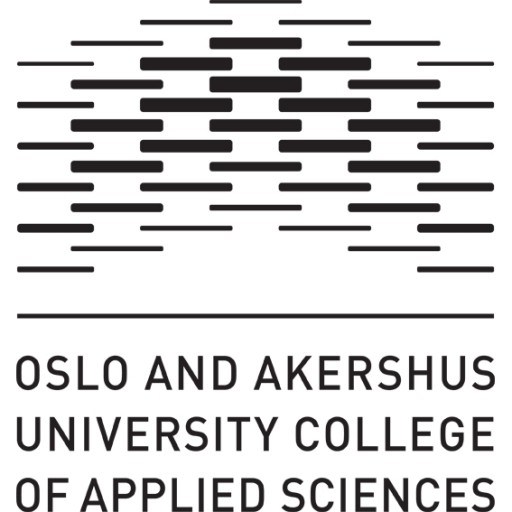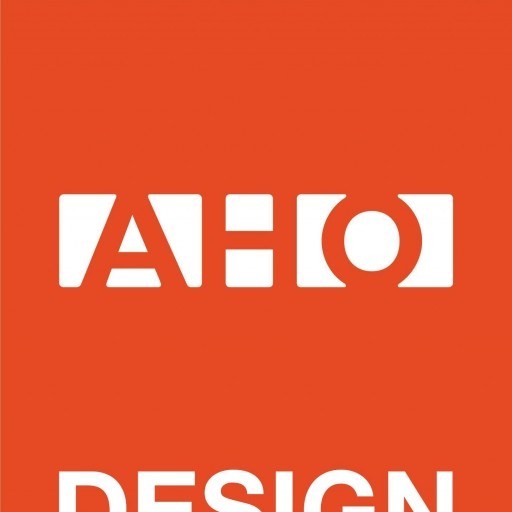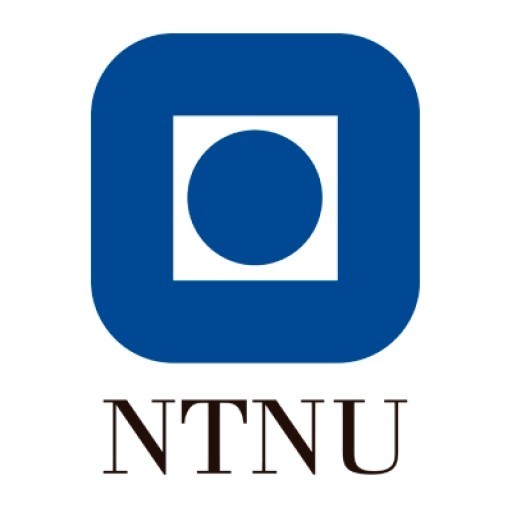Photos of university / #unioslo
Description: The Master’s programme in Informatics: Design, Use, Interaction at the University of Oslo offers an in-depth exploration of human-computer interaction, user experience, and the design of digital systems. This programme is designed for students who are passionate about understanding how people interact with technology and who wish to develop innovative solutions that enhance usability and user satisfaction. Throughout the programme, students acquire theoretical knowledge and practical skills in designing, developing, and evaluating interactive systems across various contexts. They explore topics such as user-centered design, interaction techniques, digital media, and usability testing, preparing them to create intuitive and accessible digital interfaces. The curriculum combines courses in computer science, cognitive science, design, and social sciences to provide a multidisciplinary perspective on interaction design. Students are encouraged to work on real-world projects, collaborating with industry partners and engaging in research to address current challenges in technology use. The programme emphasizes the importance of ethical considerations, sustainability, and diversity in design, fostering responsible innovation. Graduates of this programme are equipped to pursue careers as interaction designers, usability engineers, user experience specialists, and digital product developers across various sectors, including technology, healthcare, education, and public services. The university provides excellent facilities, research opportunities, and close ties with industry, supporting students to develop a comprehensive understanding of the design and use of digital systems in a rapidly evolving technological landscape. The programme aims to cultivate critical thinking, creativity, and technical expertise, empowering students to shape the future of human-computer interaction and contribute to meaningful technological advancements.
The Master's Degree Programme in Informatics: Design, Use, Interaction at the University of Oslo offers a comprehensive and interdisciplinary education focused on the design, development, and evaluation of digital information systems and interactive technologies. This programme prepares students to understand the social, technical, and professional aspects of modern informatics, enabling them to create user-centered and innovative digital solutions in various fields such as healthcare, education, entertainment, and industry. Throughout the programme, students will explore key topics including human-computer interaction, user experience design, software development, information architecture, and digital innovation. The curriculum combines theoretical foundations with practical skills, fostering critical thinking and problem-solving abilities necessary for designing effective and accessible digital interactions. Students will engage in hands-on projects, collaboration with industry partners, and research activities, all aimed at developing competencies in designing user-friendly interfaces, understanding user behavior, and applying technology ethically and responsibly. The programme also emphasizes the importance of understanding societal impacts of technology, promoting inclusivity and accessibility in digital design. Through a combination of coursework, project work, and thesis research, students will gain a deep understanding of how digital systems are created and used within diverse social contexts. Graduates of this programme will be well-equipped for careers in user experience design, interaction development, digital consultancy, and other roles that require expertise in designing engaging, efficient, and sustainable digital environments. The University of Oslo’s strong research community and close ties to industry ensure that students receive education that is both academically rigorous and aligned with current technological trends and societal needs. This programme is ideal for individuals passionate about shaping the future of digital interactions and interested in working at the intersection of technology, design, and human behavior.
Program requirements for the Master's degree in Informatics: Design, Use, Interaction at the University of Oslo include a combination of coursework, project work, and a thesis. Applicants must hold a Bachelor's degree or equivalent in a relevant field, such as computer science, informatics, or related disciplines. Prior programming experience and knowledge of foundational concepts in information technology are strongly recommended. The program emphasizes interdisciplinary skills, so applicants with backgrounds in design, psychology, or human-computer interaction are also encouraged to apply. English language proficiency is required, generally demonstrated through tests such as IELTS or TOEFL, unless the applicant has completed previous education in English. To complete the program successfully, students are expected to accumulate a specified number of credits through coursework, typically involving compulsory courses focusing on interaction design, user-centered design, and digital innovation. Elective courses allow students to tailor their studies towards areas like user experience, interaction technology, or design principles. A significant component of the program is the project work, which involves collaborative and individual projects that simulate real-world challenges in designing and utilizing interactive systems. These projects develop skills in problem-solving, user research, and system development. The culmination of the program is a master's thesis that demonstrates the student's ability to conduct independent research and apply theoretical knowledge to practical problems within the field of human-computer interaction. Students are also expected to participate in seminars, workshops, and presentations throughout their course of study to enhance their academic and professional communication skills. The program aims to prepare graduates for careers in academia, industry, and research institutions, focusing on innovative design and the effective use of interactive technologies.
The financing of the "Informatics: Design, Use, Interaction" program at the University of Oslo is primarily supported through a combination of public funding, tuition fees, and various scholarship opportunities. As a Norwegian state university, the University of Oslo benefits from government funding allocated to higher education institutions, which ensures that essential academic programs remain accessible and of high quality. For international students, tuition fees may be applicable and are determined by regulations set by the Norwegian government; however, the specifics can vary depending on the student's nationality and residency status.
Students enrolled in this program have access to numerous scholarship options, including the Norwegian State Educational Loan Fund (Lånekassen), which offers financial support to Norwegian, Nordic, and some EU/EEA students. The Lånekassen provides loans and grants to help cover living expenses and tuition fees, making higher education more accessible for students from diverse backgrounds. Additionally, the university may offer internal scholarships or grants based on academic merit, financial need, or specific criteria linked to the program's focus, enabling eligible students to offset their costs more effectively.
International students are often encouraged to seek external scholarships from their home countries or international organizations, as the university participates in various exchange and scholarship programs fostering global academic mobility. Moreover, students might engage in part-time work opportunities on or near the university campus, which can help supplement their income during their studies.
Students should also be aware of the potential costs associated with studying, such as accommodation, transportation, textbooks, and personal expenses, which constitute a significant part of the overall financial planning. The university advises prospective students to carefully consider these costs and explore available financial aid options early in the application process.
Overall, the financing structure of the "Informatics: Design, Use, Interaction" program at the University of Oslo is designed to support both Norwegian and international students through a comprehensive mix of state funding, scholarships, and work opportunities. The university’s commitment to making education accessible ensures that students can focus on their academic and research pursuits without undue financial hardship, provided they actively seek and utilize the available financial support mechanisms.
The Master's program in Informatics: Design, Use, Interaction at the University of Oslo is structured to provide students with a comprehensive understanding of how humans interact with digital systems and how these interactions can be optimized for usability, accessibility, and user experience. The program focuses on the interdisciplinary nature of informatics, combining elements from computer science, cognitive science, psychology, design, and human-computer interaction. Students gain practical skills in designing user-friendly interfaces, developing interactive systems, and understanding user needs through research and experimentation.
Throughout the program, students engage in a variety of coursework that covers core topics such as user-centered design, prototyping, usability testing, and the theoretical foundations of human-computer interaction (HCI). The curriculum emphasizes hands-on learning, allowing students to participate in projects that involve creating prototypes, conducting user studies, and analyzing interaction data. These projects prepare graduates for work in industries like software development, IT consultancy, research, and innovation roles that require expertise in designing interactive systems.
Furthermore, the program encourages an innovative approach to problem-solving by involving students in real-world challenges and collaborative projects. Students learn to employ design thinking methodologies and apply interdisciplinary theories to develop solutions that enhance user engagement and accessibility. The program also aims at fostering critical thinking and research skills, enabling students to contribute to academic and industry advancements in the field of human-computer interaction.
Students have access to state-of-the-art facilities and are supported by expert faculty members with extensive experience in academia and industry. Opportunities for internships and collaboration with industry partners are integrated into the program, providing valuable work experience and networking opportunities. The program concludes with a master's thesis that allows students to conduct in-depth research on a topic of their choice within the field.
Graduates of the Master's in Informatics: Design, Use, Interaction are well-equipped for careers in designing digital interfaces, improving user experience, and developing innovative interactive applications. They are also prepared to pursue doctoral studies or research roles in academia or industry. The University of Oslo's international environment and focus on cutting-edge technology ensure that students are at the forefront of developments in human-computer interaction and digital design.






